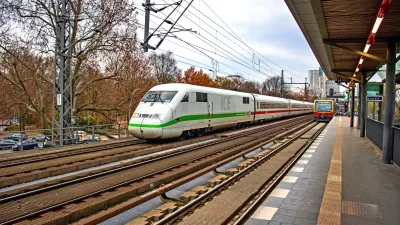It appears that everyone is talking about the impact that sports stadiums have on urban economic development. As soon as one person says they're a terrible idea, another article will retort the benefits brought to a given city.
In this article by the Initiative for a Competitive Inner City, the author looks at both sides of the argument. Sure, public subsides are often required to finance these urban stadiums. Tax breaks, free land, government-subsidized tax-free loans and discounts are routinely offered by cities in order to attract a sports team to build a stadium in their hometown. NYC was able to attract the Nets by offering $511 million in tax exempt bonds. The initial plans included office towers and affordable housing to be built alongside the stadium, but these have since been scrapped due to the economy.
But even without the office towers and condo complexes, is the stadium a worthwhile investment for NYC?
Boston Mayor Tom Menino announced in June that fans had spent $300 million in Boston as a direct result of hometown sporting events the past year. A pennant race and Stanley Cup championship certainly didn't hurt the city's efforts.
The article seeks feedback on the importance of stadiums to urban economic development--and whether these public subsidies are worthwhile. Can stadiums really create "shared value"? If so, how?
Thanks to Amanda Maher
FULL STORY: An Economic Development Case for Building Sports Stadiums—Or Not

Planetizen Federal Action Tracker
A weekly monitor of how Trump’s orders and actions are impacting planners and planning in America.

Restaurant Patios Were a Pandemic Win — Why Were They so Hard to Keep?
Social distancing requirements and changes in travel patterns prompted cities to pilot new uses for street and sidewalk space. Then it got complicated.

Map: Where Senate Republicans Want to Sell Your Public Lands
For public land advocates, the Senate Republicans’ proposal to sell millions of acres of public land in the West is “the biggest fight of their careers.”

Maui's Vacation Rental Debate Turns Ugly
Verbal attacks, misinformation campaigns and fistfights plague a high-stakes debate to convert thousands of vacation rentals into long-term housing.

San Francisco Suspends Traffic Calming Amidst Record Deaths
Citing “a challenging fiscal landscape,” the city will cease the program on the heels of 42 traffic deaths, including 24 pedestrians.

California Homeless Arrests, Citations Spike After Ruling
An investigation reveals that anti-homeless actions increased up to 500% after Grants Pass v. Johnson — even in cities claiming no policy change.
Urban Design for Planners 1: Software Tools
This six-course series explores essential urban design concepts using open source software and equips planners with the tools they need to participate fully in the urban design process.
Planning for Universal Design
Learn the tools for implementing Universal Design in planning regulations.
Heyer Gruel & Associates PA
JM Goldson LLC
Custer County Colorado
City of Camden Redevelopment Agency
City of Astoria
Transportation Research & Education Center (TREC) at Portland State University
Camden Redevelopment Agency
City of Claremont
Municipality of Princeton (NJ)





























